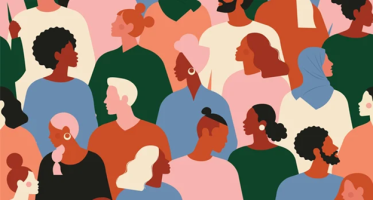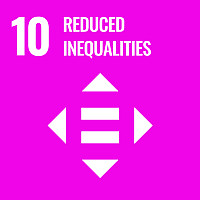The roles of DEI policies in Education and Society
October 02, 2025
Elianna Forde

SDG: 10 Reduced Inequalities
What are DEI policies, and what does DEI stand for? Let’s break down each component to understand their meaning and importance. Diversity refers to the active inclusion of individuals from a wide range of backgrounds, including but not limited to differences in race, ethnicity, gender, age, socioeconomic status, abilities, and sexual orientation. Equity goes beyond mere equality, focusing on ensuring that everyone has access to the resources and opportunities they need to succeed, considering the different challenges individuals face. Inclusion is the practice of creating environments where all people, regardless of their background or identity, feel valued and empowered to contribute. These definitions encapsulate the essence of DEI and how these policies and initiatives are put into action across the United States in various institutions, organizations, and companies.
The core reason for implementing DEI policies is to combat the widespread inequities and discrimination faced by certain groups in society. These policies were created to address the needs of communities that have long been marginalized or excluded from full participation in many aspects of public and private life. Communities that make up a large portion of the U.S. population, including racial minorities, women, LGBTQIA+ individuals, people with disabilities, and those from lower socioeconomic backgrounds, are the primary beneficiaries of these policies. The goal is to cater to “the people”, to ensure equal representation and opportunities for everyone, and to align with the ongoing shifts in societal norms, attitudes, and expectations around equality and justice.
DEI policies play an important role on college campuses, especially at schools like SUNY Purchase, where they are part of the school’s mission and everyday life. While these policies aren’t usually laws, they guide efforts like diversity courses and programs that promote inclusion among students, faculty, and staff. These efforts help students become more aware, understanding, and ready to live and work in a diverse world. However, DEI policies are now facing pushback, with critics calling them politically driven. As debates spread from businesses to colleges, some worry that removing DEI efforts could harm campus diversity and have broader societal and economic effects.
At SUNY Purchase, specific DEI programs, such as the Educational Opportunity Program (E.O.P.) and Merit Access Program (M.A.P.), play crucial roles in supporting students who may face barriers to academic success. E.O.P. provides assistance to students who have the academic potential but lack the financial resources or preparation to attend college. Similarly, M.A.P. ensures that students who may not have had access to advanced resources or preparation, due to their background, can still reach their academic potential. These programs represent key elements of DEI in action, as they create opportunities for students from disadvantaged groups.
Some critics argue that DEI policies, especially those that involve affirmative action or other support programs, create an unfair advantage for those who qualify. They suggest that such policies might be viewed as giving people from diverse backgrounds an unearned privilege in education and the workplace. Others argue that DEI initiatives could disadvantage individuals who do not qualify for these programs, thereby creating a sense of unfairness. While it is important to address these concerns to maintain balance and fairness, the main objective of DEI policies is not to create an unfair advantage for any one group, but to level the playing field for historically marginalized communities. DEI policies aim to provide the support and resources needed to help individuals from these groups overcome obstacles that they may have faced due to systemic discrimination and exclusion. Rather than “rewarding” diversity, these policies are about ensuring that everyone, regardless of their background, has the same opportunities to thrive and succeed in a society that has traditionally marginalized certain groups.
The potential banning of DEI policies poses a major threat that could set back progress by years, if not decades. It would undermine the efforts of countless individuals and organizations that have worked tirelessly to create a more just and equitable society. The implications of this shift would be felt by everyone, from students and educators to the workforce and the broader community.
Elianna Forde
2024 Cohort, Writers’ Team Spring ’25
“Educational Opportunity Program / Merit Access Program.” Purchase College, SUNY, https://www.purchase.edu/offices/eopmap
“Americans’ Perspectives on Diversity, Equity, and Inclusion (DEI) in Higher Education.” New America, 2025, https://www.newamerica.org/education-policy/edcentral/americans-perspectives-on-diversity-equity-and-inclusion-dei-in-higher-education.
“Public Colleges Are More Diverse Than Ever — But Anti-DEI Policies Threaten That Progress.” Economic Policy Institute, 2025, https://www.epi.org/blog/public-colleges-are-more-diverse-than-ever-but-anti-dei-policies-threaten-that-progress
